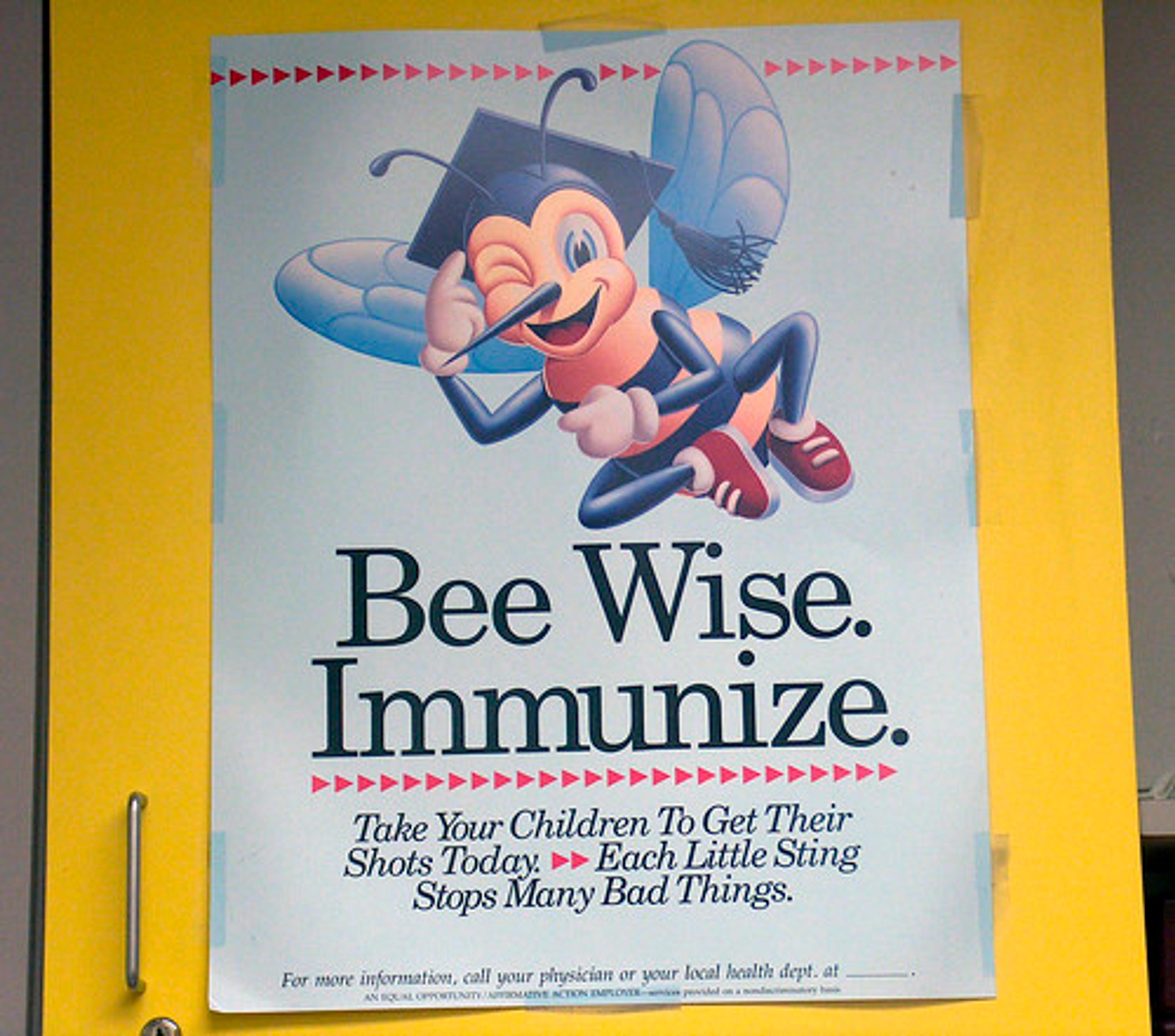“Vac Facts”: MMR – one shot combating three killers
Lara Abramov
| 4 min read

Measles, mumps and rubella – three different diseases that can each have fatal consequences. Since the creation of the MMR vaccine, cases of measles, mumps and rubella have fallen tremendously.
Prior to vaccinations, there were 300,000 cases of mumps reported every year. Before the rubella immunization was used routinely in the U.S., there was an epidemic of rubella that resulted in an estimated 20,000 infants born with congenital rubella syndrome and it’s projected that if the measles vaccination were to stop, then about 2.7 million measles deaths could occur worldwide each year. That’s why the MMR vaccination is so important.
- Measles can cause ear infections, pneumonia, seizures, brain damage and death.
- Mumps can cause deafness, meningitis, painful swelling of the testicles or ovaries, and, rarely, death.
- Rubella (German measles) causes rash, mild fever and arthritis (mostly in women). If a woman gets rubella while she is pregnant, she could have a miscarriage or her baby could be born with serious birth defects.
Signs and symptoms include:
Mumps: Up to half the people who get mumps have very mild or no symptoms, and therefore do not know they’re infected with mumps. However, common symptoms include:
- Fever
- Headache
- Muscle aches
- Tiredness
- Loss of appetite
- Swollen and tender salivary glands under the ears on one or both sides (parotitis)
Measles: The symptoms of measles generally begin about 7-14 days after a person is infected and include:
- Blotchy rash
- Fever
- Cough
- Runny nose
- Red, watery eyes (conjunctivitis)
- Feeling run down, achy (malaise)
- Tiny white spots with bluish-white centers found inside the mouth (Koplik’s spots)
Rubella: Rash and fever for two to three days (mild disease in children and young adults)
For the best protection against measles, mumps and rubella, children need to be vaccinated twice:
- Once when they are 12-15 months old
- Once when they are 4-6 years old
However, the CDC advises not getting the MMR vaccine if:
- You’ve had a life-threatening allergic reaction to the antibiotic neomycin or any other component of the MMR vaccine
- Anyone who had a life-threatening allergic reaction to a previous dose of MMR vaccine
- Some people who are sick at the time the shot is scheduled may be advised to wait until they recover
- Pregnant women should not get MMR vaccine, but should wait until after giving birth
The check out the CDC Facts Sheet on the MMR vaccine to find out what you should talk with your doctor about before getting the immunization.
A vaccine, like any medicine, is capable of causing serious problems, such as severe allergic reactions; however, most people who get the MMR vaccine do not have any serious problems with it.
Mild Problems (If these problems occur, it is usually within 7-12 days after the shot. They occur less often after the second dose.)
- Fever (up to 1 person out of 6)
- Mild rash (about 1 person out of 20)
- Swelling of glands in the cheeks or neck (about 1 person out of 75)
Moderate Problems
- Seizure (jerking or staring) caused by fever (about 1 out of 3,000 doses)
- Temporary pain and stiffness in the joints, mostly in teenage or adult women (up to 1 out of 4)
- Temporary low platelet count, which can cause a bleeding disorder (about 1 out of 30,000 doses)
Severe Problems (Very rare, so rare that it is hard to tell whether they are caused by the vaccine.)
- Serious allergic reaction (less than 1 out of a million doses)
- Several other severe problems have been reported after a child gets MMR vaccine, including:
- Deafness
- Long-term seizures, coma, or lowered consciousness
- Permanent brain damage
The risk of MMR vaccine causing serious harm, or death, is extremely small and getting the MMR vaccine is much safer than getting measles, mumps or rubella.
The second dose of the MMR should between 4 and 6 years of age. For more information, please review the CDC MMR Facts Sheet.
Photo credit: TangoPango





